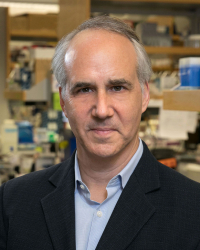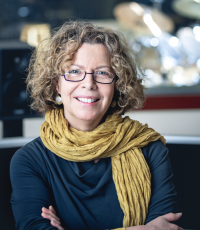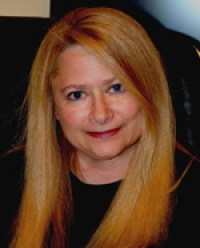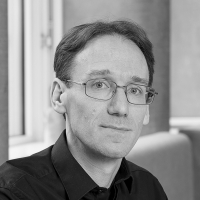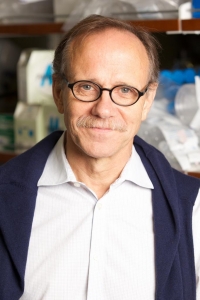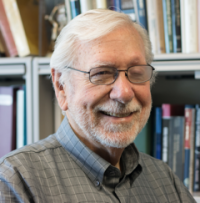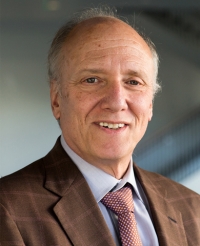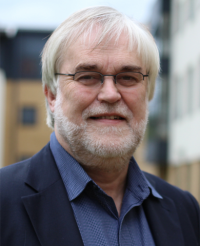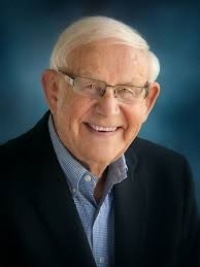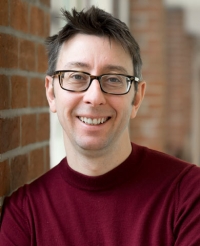Extraordinary Variations of the Human Mind: Lessons for Anthropogeny
Biographical Sketches: Co-Chairs
University of California, Los Angeles
Daniel Geschwind is the Gordon and Virginia MacDonald Distinguished Professor of Neurology, Psychiatry and Human Genetics at UCLA and serves on the CARTA External Advisory Board. In his capacity as Senior Associate Dean and Associate Vice Chancellor of Precision Health, he leads the Institute for Precision Health (IPH) at UCLA. In his laboratory, his group has pioneered the application of systems biology methods in neurologic and psychiatric disease, with a focus on autism spectrum disorders (ASD) and neurodegenerative conditions. His laboratory has made major contributions to identifying genetic causes of ASD, defining the molecular pathology of ASD and allied psychiatric disorders, and has worked to increase diversity in ASD research. His work in dementia is focused on the mechanisms of tauopathies, where his laboratory is developing novel therapeutic approaches.
Dr. Geschwind sits on editorial boards of Cell, Science and Neuron, and is among the highest cited neurologists in the world. He has received several awards for his laboratory’s work including the American Neurological Association (ANA) Derek Denny-Brown Neurological Scholar Award, most recently the Society of Biological Psychiatry Gold Medal Award and the American Academy of Neurology’s 2022 Cotzias Lecture and Award and is an elected Member of the American Association of Physicians and the National Academy of Medicine.
BRAMS, Université de Montréal
Dr. Peretz is a professor of Psychology at the University of Montreal and the holder of a Canada Research Chair in neurocognition of music. She is renowned for her work on congenital and acquired musical disorders (amusia) and on the biological foundations of music processing in general. In 2005, Dr. Peretz became the founding co-director of the international laboratory for Brain, Music, and Sound research (BRAMS), a unique multi-university consortium that is jointly affiliated to Université de Montréal and McGill University. Dr. Peretz is the founding Editor-in-chief of the open-access Frontiers of Auditory Cognitive Neuroscience and is a fellow of the Royal Society of Canada and of the American Psychological Association.
Biographical Sketches: Speakers
National Institutes of Health
Dr. Berman is Senior Investigator and Chief of the Clinical and Translational Neuroscience Branch, the Section on Integrative Neuroimaging, and the Psychosis and Cognitive Studies Section at the National Institutes of Health, NIMH Intramural Research Program. She conducts translational investigations, using multimodal neuroimaging to bridge the gap between neurogenetic, molecular, cellular, and system-level mechanisms in neurodevelopment and in neuropsychiatric disorders. This work has been published in Nature Neuroscience, Neuron, the Journal of Clinical Investigation, the Proceedings of the National Academy of Sciences, and the Journal of Neuroscience, among others. She completed residency training in psychiatry at Washington University in St. Louis and at the University of California at San Diego, as well as residency in nuclear medicine at the NIH Clinical Center. She has Board certification in both Psychiatry and Nuclear Medicine. Dr. Berman has received a number of awards, including the A.E. Bennett Award for Neuropsychiatric Research of the Society of Biological Psychiatry, the NARSAD Independent Investigator and Distinguished Investigator Awards, four NIH Bench to Bedside Awards, and the NIH Director’s Award. She has been President of the Organization for Human Brain Mapping and is President-elect of the Society of Biological Psychiatry. Dr. Berman is an elected member of the National Academy of Medicine (formerly the Institute of Medicine).
Max Planck Institute for Psycholinguistics
Simon E. Fisher is a director of the Max Planck Institute for Psycholinguistics and Professor of Language and Genetics at the Donders Institute for Brain, Cognition and Behaviour, in Nijmegen, the Netherlands. He obtained a Natural Sciences degree at Cambridge University, UK, followed by a doctorate in Human Genetics at Oxford University, UK. For his postdoctoral research Simon joined Prof. Anthony Monaco's group at the Wellcome Trust Centre for Human Genetics (WTCHG) in Oxford, where he worked on genetic analyses of human neurodevelopmental disorders, and isolated the first case of a gene implicated in speech and language deficits. In 2002, Simon was awarded with a Royal Society University Research Fellowship and became head of his own laboratory at the WTCHG, using state-of-the-art methods to uncover how language-related genes influence the brain. From 2007-2010, he was also the Isobel Laing Fellow in Biomedical Sciences at Oriel College, Oxford University, teaching Biochemistry and Medical Genetics to undergraduate students. In 2010 Simon was appointed a Scientific Member of the Max Planck Society and became director of the Nijmegen MPI, heading a new department devoted to understanding the functional links between genetics and language. Simon’s work involves extensive supervision of post-doctoral scientists, research assistants and students, and interdisciplinary collaborations worldwide. He is author of >270 published journal articles, including original research in Nature, Science, New England Journal of Medicine, Cell, Current Biology, PNAS, Science Advances, Nature Genetics, Nature Neuroscience, Nature Human Behaviour and Nature Communications, and high impact reviews in Nature Reviews Genetics/Neuroscience, Annual Review of Genetics/Neuroscience, Trends in Cognitive Sciences/Genetics and Current Opinion in Genetics & Development/Neurobiology. According to Google Scholar, Simon’s publications have been cited >40,800 times and his h-index is 102. He has given >160 invited talks at departmental colloquia and international conferences. Awards include the Francis Crick Medal and Lecture (2008) and the Eric Kandel Young Neuroscientists Prize (2009). Simon’s research adopts a multidisciplinary viewpoint, integrating data from genomics, psychology, neuroscience, developmental biology and evolutionary anthropology.
Salk Institute for Biological Studies
Fred H. Gage is a Professor in the Laboratory of Genetics and the past President (2018-2023) of the Salk Institute. He is an Adjunct Professor at UC San Diego, and emeritus Co-Director of CARTA. Dr. Gage concentrates on the adult central nervous system and unexpected plasticity and adaptability to environmental stimulation that remains throughout the life of all mammals. His work may lead to methods of replacing or enhancing brain and spinal cord tissues lost or damaged due to Neurodegenerative disease or trauma. Gage's lab showed that, contrary to accepted dogma, human beings are capable of growing new nerve cells throughout life. Small populations of immature nerve cells are found in the adult mammalian brain, a process called Neurogenesis. He is working to understand how these cells can be induced to become mature functioning nerve cells in the adult brain and spinal cord. They showed that environmental enrichment and physical exercise can enhance the growth of new brain cells and they are studying the underlying cellular and molecular mechanisms that may be harnessed to repair the aged and damaged brain and spinal cord. Gage is a member of the National Academy of Science and the Institute of Medicine.
University of California, Irvine
James L. McGaugh is a Research Professor and Founding Chair of the Department of Neurobiology and Behavior and Founding Director of the Center for the Neurobiology of Learning and Memory at the University of California, Irvine. His research investigates brain systems that regulate the formation of lasting memories. He is a member of the U.S. National Academy of Sciences and the American Academy of Arts and Sciences and a Foreign Member of the Brazilian and Mexican academies of science. He received the Laurea Honoris Causa from the University of L’Aquila in Italy. He is a William James Fellow and past president of the Association for Psychological Science and received the Distinguished Scientific Contribution Award from the American Psychological Association, the McGovern Award from the American Association for the Advancement of Science and the Grawemeyer Award.
University of California, San Francisco
Bruce L. Miller, MD, is the A.W. and Mary Margaret Clausen Distinguished Professor of Neurology and director of the UCSF Edward and Pearl Fein Memory and Aging Center, an NIH-sponsored Alzheimer’s Disease Research Center. A world-renowned behavioral neurologist, Dr. Miller specializes in the diagnosis and management of neurodegenerative diseases, with a particular focus on frontotemporal dementia (FTD). His groundbreaking research has advanced the understanding of brain-behavior relationships, disease mechanisms, and therapeutic approaches for dementia.
Dr. Miller’s work integrates genomics, neuroimaging, and precision medicine with artificial intelligence (AI) to deepen our understanding of neurodegenerative disorders. He has established several major research initiatives, including the Tau Consortium and Bluefield Project to Cure Frontotemporal Dementia. He also oversees the ReDLat initiative, which studies Alzheimer’s disease and FTD across the Americas. As the founding director of the Global Brain Health Institute (GBHI) at UCSF, Dr. Miller established a program to train global leaders in brain health, with a mission to reduce the worldwide impact of dementia through prevention and intervention strategies.
As a clinician, Dr. Miller emphasizes compassionate, innovative care for patients and their families. He has pioneered programs to enhance care coordination and support patients after diagnosis, including a healthy aging program and an artist-in-residence initiative that highlights the role of creativity in the aging process. His work has helped distinguish Alzheimer’s disease from other dementias, particularly FTD, through his descriptions of changes in behavior, language, and emotion.
Dr. Miller founded the UCSF Behavioral Neurology Fellowship and hosts scholars from around the world to advance brain health research. He authored nearly 2,000 publications and many books, including The Human Frontal Lobes, Finding the Right Words (co-written with Atlantic Fellow Cynthia Weinstein, PhD), and Mysteries of the Social Brain (co-written with Virginia Sturm, PhD).
He has received numerous honors, including the Potamkin Award from the American Academy of Neurology and election to the National Academy of Medicine. He has appeared on Good Morning America, a Diane Sawyer special about Bruce Willis, 60 Minutes, PBS NewsHour, and has been featured in The New York Times and Fortune Magazine.
University of Roehampton
Adam Ockelford is Professor of Music and Director of the Applied Music Research Centre at the University of Roehampton, London, UK. He has an international reputation as a teacher, researcher and writer in the field of autism and special musical abilities. His TED talk with his long-term protégé, musical savant Derek Paravicini, can be found at https://www.ted.com/talks/derek_paravicini_and_adam_ockelford_in_the_key_of_genius
University of Wisconsin
Dr. Treffert (1933-2020) graduated from the University of Wisconsin Medical School in 1958, interned in Eugene, Oregon, and then completed a Residency in Psychiatry at University Hospitals in Madison, Wisconsin. In 1962 he joined the staff of Winnebago Mental Health Institute where he developed the Child-Adolescent Unit. In 1964 he was named Superintendent of the Institute, a position he held for 15 years. In 1979 he left that position to divide his time between the private practice of Psychiatry and a position as Executive Director of the Fond du Lac County Health Care Center. During that time he was also Medical Director of the Alcoholism Rehabilitation Unit of St. Agnes Hospital in Fond du Lac. In 1991 he retired from those positions to pursue private practice, writing, and lecturing. He passed away in December 2020.
Dr. Treffert was President of the State Medical Society of Wisconsin in 1979-80 and Chairman of the Board of Directors of that organization from 1981-87. He had been President of the Wisconsin Psychiatric Association and the American Association of Psychiatric Administrators. He was a member and Chairman of the Controlled Substances Board of Wisconsin from 1970-1982. He was reappointed to that position by Governor Doyle in September 2004. In 1995 he was appointed by the Governor to the Wisconsin Medical Examining Board and was elected Chairman of the MEB in January, 2002. Dr. Treffert was on the faculty of the University of Wisconsin Medical School as a clinical professor. He was also a clinical professor at UW-Milwaukee.
Professional speaking and writing interests included prevention in the mental health area under the title of "Mellowing" and prevention in the physical health area under the title of "Rustproofing People." He was an internationally known researcher on the Savant Syndrome (islands of genius in otherwise severely disabled persons) and nationally known as well for his writings in the area of the rights of the mentally ill. In these areas, he made appearances on 60 Minutes, CBS Evening News, McNeil/Lehrer Newshour, Larry King, Today, Donahue, Oprah, Discovery Channel, and a number of documentaries in the U.S. and other countries. His work appeared in numerous publications including Time, People, Newsweek, USA Today, and Scientific American. He published over 50 publications in professional journals as well. His book, Extraordinary People: Understanding Savant Syndrome, was published in 1989 by Harper and Row and Ballantine, and was re-issued with an epilogue update by iUniverse.com in 2000 and 2006. It was also translated and published in eight other countries. His most recent book on the topic--Islands of Genius: The Bountiful Mind of the Autistic, Acquired and Sudden Savant--was published in 2010, providing a timely update and expansion on this fascinating condition. An earlier book on preventive mental health and stress management--Mellowing: Lessons from Listening--has also been widely distributed. Dr. Treffert was a consultant to the movie Rain Man, in which Dustin Hoffman portrays an autistic savant. He maintained a website on savant syndrome through the Wisconsin Medical Society.
Dr. Treffert received honorary awards from the Wisconsin Mental Health Association, the Office of Alcoholism and Drug Abuse of Wisconsin, and the Wisconsin Association for Marriage and Family Therapy. In 2006, Dr. Treffert received the National Torrey Advocacy Commendation from the Treatment Advocacy Center in Arlington for his efforts on behalf of mental health law reform and treatment access for the severely mentally ill. He was listed in The Best Doctors in America, by peer selection, beginning in 1979. He resided in Fond du Lac, Wisconsin, and was on the staff of St. Agnes Hospital in that community. He also served on the Board of Trustees of Marian University.
In April, 2016 Agnesian HealthCare in Fond du Lac, Wisconsin established the Treffert Center on the campus of St. Agnes Hospital. The center provides library access to the vast collection of savant syndrome books, papers, videos, and related materials to preserve Dr. Treffert's long involvement with savant syndrome, and provides resources to continue and expand research into savant syndrome and other types of exceptional brain performance. The center website is www.treffertcenter.com
University of Sussex
Jamie Ward is a Professor of Cognitive Neuroscience at the University of Sussex, UK, and a Co-Director of Sussex Neuroscience. He is one of the world’s leading authorities on synaesthesia and has published widely on topics such as multi-sensory perception, social cognition, enhanced and impaired memory, and sensory substitution. His research methods draw on experimental psychology and human neuroscience. He is also well-known for his undergraduate textbooks (The Students Guide to Cognitive Neuroscience; The Students Guide to Social Neuroscience) as well as being the founding editor of Cognitive Neuroscience.
